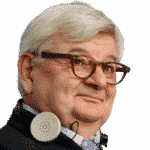Russia’s full-scale invasion of Ukraine on February 24th 2022 changed everything for Ukraine, for Europe and for global politics. The world entered a new era of great-power rivalry in which war could no longer be excluded. Apart from the immediate victims, Russia’s aggression most concerned Europe. A great power seeking to extinguish an independent smaller country by force challenges the core principles upon which the European order of states has organised itself for decades.
The war of Vladimir Putin, the Russian president, stands in stark contrast to the self-dissolution of the Warsaw Pact and the Soviet Union, which occurred in a largely non-violent manner. Since the Mikhail Gorbachev ‘miracle’—when the Soviet Union started pursuing liberalising reforms under him in the 1980s—Europeans had begun to imagine that Immanuel Kant’s vision of perpetual peace on the continent might be possible. It was not.
Historical revision
The problem was that many Russian elites’ interpretation of the globally significant events of the late 1980s could not be more opposed to Kant’s idea. They saw the demise of the great Russian empire (which the Soviets had recreated) as a devastating defeat. Though they had no choice but to accept the humiliation, they told themselves they would do so only temporarily until the balance of power had changed. Then the great historical revision could begin.
Thus, the 2022 attack on Ukraine should be viewed as merely the most ambitious of the revisionist wars Russia has waged since Putin came to power. We can expect many more, especially if Donald Trump returns to the White House and effectively withdraws the United States from the North Atlantic Treaty Organization.
But Putin’s latest war not only changed the rules of coexistence on the European continent; it also changed the global order. By triggering a sweeping remilitarisation of foreign policy, the war has seemingly returned us to a time, deep in the 20th century, when wars of conquest were a staple of the great-power toolkit. Now, as then, might makes right.
Cold war
Even during the decades-long cold war, there was no risk of a ‘new Sarajevo’—the political fuse that detonated the first world war—because the standoff between two nuclear superpowers subordinated all other interests, ideologies and political conflicts. What mattered were the superpowers’ own claims to power and stability within the territories they controlled. The risk of another world war had been replaced by the risk of mutually assured destruction, which functioned as an automatic stabiliser within the bipolar system of the cold war.
Behind Putin’s war on Ukraine is the neo-imperial goal that many Russian elites share: to make Russia great again by reversing the results of the collapse of the Soviet Union. On December 8th 1991, the presidents of Russia, Belarus and Ukraine met in Białowieża National Park and agreed to dissolve the Soviet Union, reducing a ‘superpower’ to a regional (albeit still nuclear-armed) power in the form of the Russian Federation.
No, Putin does not want to revive the communist Soviet Union. Today’s Russian elite knows that the Soviet system could not be sustained. Putin has embraced autocracy, oligarchy and empire to restore Russia’s status as a global power, but he also knows that Russia lacks the economic and technological prerequisites to achieve this on its own.
For its part, Ukraine wants to join the west—meaning the European Union and the transatlantic security community of NATO. Should it succeed, it would probably be lost to Russia for good, and its own embrace of western values would pose a grave danger to Putin’s regime. Ukraine’s modernisation would lead Russians to ask why their political system had consistently failed to achieve similar results. From a ‘Great Russia’ perspective, it would compound the disaster of 1991. That is why the stakes in Ukraine are so high, and why it is so hard to imagine the conflict ending through compromise.
Junior partner
Even in the case of an armistice along the frozen front line, neither Russia nor Ukraine will distance themselves politically from their true war aims. The Kremlin will not give up on the complete conquest and subjugation (if not annexation) of Ukraine, and Ukraine will not abandon its goal of liberating all its territory (including Crimea) and joining the EU and NATO. An armistice thus would be a volatile interim solution involving the defence of a highly dangerous ‘line of control’ on which Ukraine’s freedom and Europe’s security depended.
Since Russia no longer has the economic, military and technological capabilities to compete for the top spot on the world stage, its only option is to become a permanent junior partner to China, implying quasi-voluntary submission under a kind of second Mongol vassalage. Let us not forget: Russia survived two attacks from the west in the 19th and 20th centuries—by Napoleon I and Adolf Hitler, respectively. The only invaders who have conquered it were the Mongols in the winter of 1237-38. Throughout Russia’s history, its vulnerability in the east has had far-reaching consequences.
The main geopolitical divide of the 21st century will centre on the Sino-American rivalry. Though Russia will hold a junior position, it nonetheless will play an important role as a supplier of raw materials and—owing to its dreams of empire—as a permanent security risk. Whether this will be enough to satisfy Russian elites’ self-image is an open question.
Republication forbidden—copyright Project Syndicate 2024, ‘The global consequences of the war in Ukraine’
Joschka Fischer was Germany’s foreign minister and vice-chancellor from 1998 to 2005 and a leader in the German Green Party for almost 20 years.

